第37章 CHAPTER XIX(1)
This much, however, we may say in the meantime, that having lived to be nearly seventy-three years old and died rich he must have been in very fair harmony with his surroundings. I have heard it said sometimes that such and such a person's life was a lie: but no man's life can be a very bad lie; as long as it continues at all it is at worst nine-tenths of it true.
Mr Pontifex's life not only continued a long time, but was prosperous right up to the end. Is not this enough? Being in this world is it not our most obvious business to make the most of it--to observe what things do bona fide tend to long life and comfort, and to act accordingly? All animals, except man, know that the principal business of life is to enjoy it--and they do enjoy it as much as man and other circumstances will allow. He has spent his life best who has enjoyed it most; God will take care that we do not enjoy it any more than is good for us. If Mr Pontifex is to be blamed it is for not having eaten and drunk less and thus suffered less from his liver, and lived perhaps a year or two longer.
Goodness is naught unless it tends towards old age and sufficiency of means. I speak broadly and exceptis excipiendis. So the psalmist says, "The righteous shall not lack anything that is good."
Either this is mere poetical license, or it follows that he who lacks anything that is good is not righteous; there is a presumption also that he who has passed a long life without lacking anything that is good has himself also been good enough for practical purposes.
Mr Pontifex never lacked anything he much cared about. True, he might have been happier than he was if he had cared about things which he did not care for, but the gist of this lies in the "if he had cared." We have all sinned and come short of the glory of making ourselves as comfortable as we easily might have done, but in this particular case Mr Pontifex did not care, and would not have gained much by getting what he did not want.
There is no casting of swine's meat before men worse than that which would flatter virtue as though her true origin were not good enough for her, but she must have a lineage, deduced as it were by spiritual heralds, from some stock with which she has nothing to do.
Virtue's true lineage is older and more respectable than any that can be invented for her. She springs from man's experience concerning his own well-being--and this, though not infallible, is still the least fallible thing we have. A system which cannot stand without a better foundation than this must have something so unstable within itself that it will topple over on whatever pedestal we place it.
The world has long ago settled that morality and virtue are what bring men peace at the last. "Be virtuous," says the copy-book, "and you will be happy." Surely if a reputed virtue fails often in this respect it is only an insidious form of vice, and if a reputed vice brings no very serious mischief on a man's later years it is not so bad a vice as it is said to be. Unfortunately though we are all of a mind about the main opinion that virtue is what tends to happiness, and vice what ends in sorrow, we are not so unanimous about details--that is to say as to whether any given course, such, we will say, as smoking, has a tendency to happiness or the reverse.
I submit it as the result of my own poor observation, that a good deal of unkindness and selfishness on the part of parents towards children is not generally followed by ill consequences to the parents themselves. They may cast a gloom over their children's lives for many years without having to suffer anything that will hurt them. I should say, then, that it shows no great moral obliquity on the part of parents if within certain limits they make their children's lives a burden to them.
Granted that Mr Pontifex's was not a very exalted character, ordinary men are not required to have very exalted characters. It is enough if we are of the same moral and mental stature as the "main" or "mean" part of men--that is to say as the average.
It is involved in the very essence of things that rich men who die old shall have been mean. The greatest and wisest of mankind will be almost always found to be the meanest--the ones who have kept the "mean" best between excess either of virtue or vice. They hardly ever have been prosperous if they have not done this, and, considering how many miscarry altogether, it is no small feather in a man's cap if he has been no worse than his neighbours. Homer tells us about some one who made it his business [Greek text]-- always to excel and to stand higher than other people. What an uncompanionable disagreeable person he must have been! Homer's heroes generally came to a bad end, and I doubt not that this gentleman, whoever he was, did so sooner or later.
A very high standard, again, involves the possession of rare virtues, and rare virtues are like rare plants or animals, things that have not been able to hold their own in the world. A virtue to be serviceable must, like gold, be alloyed with some commoner but more durable metal.